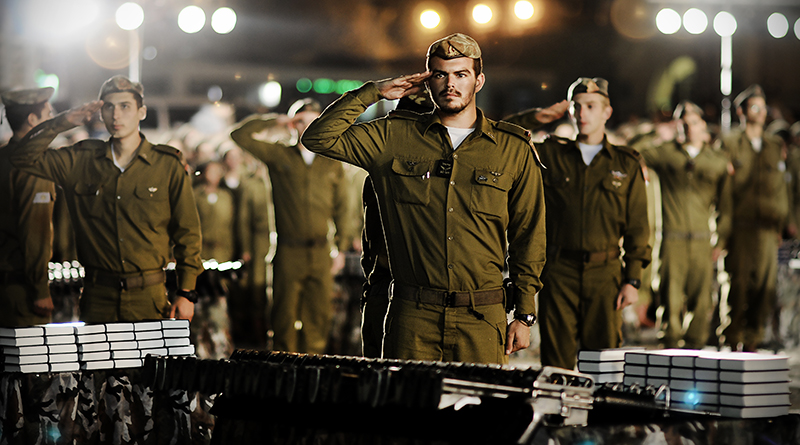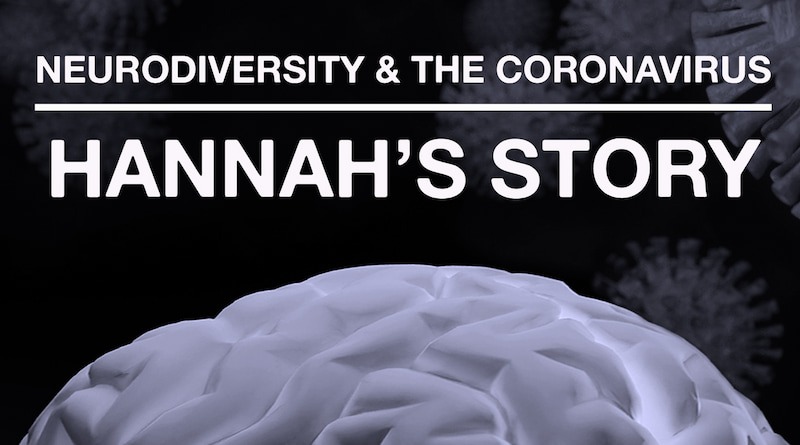
The Israeli Army Unit That Recruits Teens With Autism
Many autistic soldiers who would otherwise be exempt from military service in Israel have found a place in Unit 9900, a selective intelligence unit within the Israel Defense Force (IDF) where their heightened perceptual skills are an asset.
One of them is the 21-year-old man who for eight hours a day sits in front of multiple computer screens, scanning high-resolution satellite images for suspicious objects or movements, decoding Israel’s complex and often heavily civilian battlegrounds. For most people, combing through each millimeter of the same location from various angles would be tedious work—but for this man, who is on the autism spectrum, the job is relaxing.
E. (his full name is withheld to comply with army protocol) is a corporal in the IDF’s “Visual Intelligence Division,” otherwise known as Unit 9900, which counts dozens of Israelis on the autism spectrum among its members. The relationship is a mutually beneficial one. For these young people, the unit is an opportunity to participate in a part of Israeli life that might otherwise be closed to them. For the military, it’s an opportunity to harness the unique skill sets that often come with autism: extraordinary capacities for visual thinking and attention to detail, both of which lend themselves to the highly specialized task of aerial analysis.
Some experts believe that autistic children compensate for lagging social development by developing above-average perceptual skills, excelling in visually- and systematically-oriented activities like puzzles or drawings, enabling them to see the finer details of something. Those finer details are the nuts and bolts of the elite Unit 9900, whose soldiers act as eyes on the ground for highly sensitive operations, analyzing complex images delivered in real time from military satellites around the world.
But for many of the unit’s autistic soldiers, the more daunting challenge is learning to communicate and socialize with their peers. E.—who, like many of the autistic soldiers in the unit, is considered high functioning and attended special-education programs within a mainstream high school—says he had a hard time listening in classes, though he performed well on tests. But his biggest setback came in 12th grade, when he received an exemption letter from the army. In Israel, military service is compulsory for all 18-year-olds following high school, though exemptions are issued on grounds such as religious reasons, or physical or mental disability. In 2008, the country ended the practice of issuing blanket exemption notices for autistic Israelis and instead began accepting them on a case-by-case basis, typically for secretarial roles or voluntary civil-service positions in hospitals and schools. None of these options interested E., who had decided he would enlist only if he could have a more typical experience.
But later that year, his school was visited by representatives from Ro’im Rachok (Hebrew for “seeing into the future”), a program that helps students with autism prepare for enlistment in the IDF. After hearing of autistic Israelis who had successfully served as image analysts, E. recalls, he became convinced that he could find a meaningful position as a soldier.
The pre-army course consists of three phases, beginning with a rigorous selection process to ensure that they have the skills to successfully analyze images and that they can adjust to the army’s rigid structure. The second phase mainly consists of learning satellite-image analysis course and how to read aerial maps. In the final three-month phase, the applicants continue their professional training and therapy sessions on an army base in Tel Aviv, and decide if they are ready for enlistment. Although Unit 9900 is coed, Ro’im Rachok has had just one female soldier to date (researchers estimate that there are up to three times as many men on the autism spectrum as women).
E., who connects strongly with the army’s structured atmosphere, says he plans to apply to stay on permanently. But regardless of how long they stay, many of Ro’im Rachok’s graduates depend on the connections and skills they build in the army to help them achieve independence once they leave it. Especially in the intelligence fields, military service is often a pathway to jobs in Israel’s booming tech sector. This is particularly advantageous for young people with autism as they approach 21, the age at which almost all government-funded programs for autistic Israelis, like subsidized transportation and assisted-living services, are cut off.
Israel, like many developed countries, has experienced a continuous uptick in autism cases over the past 15 years. Between 2004 and 2011, the number of Israelis on the autism spectrum increased fivefold, with 1,000 new diagnoses per year. But autism still carries a heavy stigma among Israelis. Autistic children are frequently suspended from schools for misbehavior, and because of a lack of official special-education guidelines, some teachers have requested that autistic students receive stronger medication before they’re readmitted into class.
Partly as a means of reducing this stigma, Ro’im Rachok points to its soldiers as examples of what young people on the spectrum are capable of when they have the appropriate support systems. Efrat Selanikyo, an occupational therapist at Ono, says that she and her colleagues help to create one such support system by implementing strict and clear guidelines for the training phase of the program. She and her colleagues also help the participants take steps towards self-sufficiency, one of the most important being their mastery of Israel’s public-transportation system. Selanikyo and the occupational therapists use the bus system as a lesson for other potential small crises: When a bus is off schedule, for example, they teach students to defer to an alternative plan rather than descend into panic.
The organizers of Ro’im Rachok are currently working on plans to expand beyond Unit 9900. Future applicants will be able to train for other intelligence units of the IDF, in roles like quality assurance, programming and information sorting. This growth, they believe, will help the program continue its secondary mission of integrating people with autism into mainstream Israeli society.
The article from which this story was excerpted originally appeared in the January 2016 issue of The Atlantic. Its author is Ronen Zvulun of Reuters. The article was edited by about 50% by Different Brains editor Peter Bochner.
Peter Bochner is a writer and editor for subjects related to information technology and medicine. He has worked on such publications as Computerworld, Asian Sources and the Journal of Alzheimers Disease, served as editor for several TechTarget websites, and has written for several high-tech research firms. In addition, he served as editor for the recently published book Aspertools: The Practical Guide for Understanding and Embracing Asperger’s, Autism Spectrum Disorder and Neurodiversity, by Harold S. Reitman, M.D.




